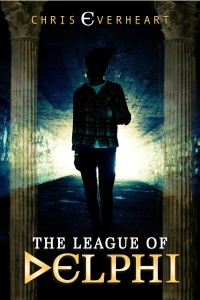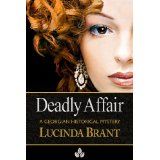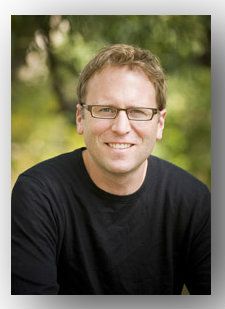Author Interview with Bernard Cornwell by Kelly P. (KellyP)
Bernard Cornwell is one of only three authors referred to by initials on the PBS Historical Fiction Forum (the other two are Elizabeth Chadwick (EC) and Sharon Kay Penman (SKP).) We also routinely talk about our favorite Historical Hunks – two of whom are Bernard Cornwell characters: Richard Sharpe from the Sharpe adventures and Uhtred, the main character in The Saxon Stories.
Speaking of Uhtred and The Saxon Stories, the 6th one, Death of Kings was released this past Janurary. The very popular series begins with The Last Kingdom.
Mr. Cornwell has written over 50 books, and for many of us, his books rest lovingly on our “keeper shelves.” He was recently kind enough to answer a few questions from his adoring HF Fans:
Kelly P: Several of us began our love affair with your books and characters with Richard Sharpe. I understand that you were pleased with BBC’s television portrayal of Richard and the Rifles. Is there anything that you wish they (the BBC crew, etc.) had done differently? Anything you were less than pleased with? How difficult is it for an author to turn over his own creation into the hands of someone else?
BC: I was delighted with what the TV producers did! There were some things I might have done differently, but there were many things that surprised and delighted me. Casting Pete Postlethwaite as Hakeswill was a stroke of genius, as indeed was choosing Sean Bean to be Sharpe. The films were always bound to differ from the books – mainly because the producers had budget restraints which didn’t affect me (it costs me nothing to create a French army), but within those constraints I think they did marvelously. And was it difficult to turn it over? Not in the least! It’s always interesting to see what another creative mind will do with material, and I was just fascinated by the product.
Kelly P: And, you will not be surprised to learn that current love affairs are with Uhtred! At the point that you started the Uhtred story, did you have the whole Saxon Chronicles already planned or has it evolved as you went along? When you started the series, did you have a concrete notion of what would happen or just vague ideas as to how things would develop?
BC: I can never plan a book, let alone a series! E.L. Doctorow once likened writing a book to driving at night down an unfamiliar country road which winds tortuously, and you can only see as far ahead as the rather feeble headlights allow. I start a book without knowing how the first chapter will end! But I do know that Uhtred’s life will parallel the creation of the English state which means he’ll live to see the battle of Brunanburh which achieved Alfred’s dream of uniting all the ‘Angelcynn’ – the folk who spoke English in Britain, and thus created England. I find it odd that the English are so ignorant of their nation’s birth – maybe because it happened so long ago. France celebrates July 14th (why?) and Americans have July 4th, 1776, but the English are strangely oblivious of the events which made their nation.
Kelly P: When we aren’t reading, we often amuse ourselves by matching up actors with characters – because, above all else, we want to see our favorite books made into great movies! So, if the Saxon Chronicles were turned into a movie, what current actor do you most envision playing Uhtred? What about King Alfred or some of the other major players in the series?
BC: Oh dear – I have no idea! The wonderful thing is that there are splendid casting directors and agencies who know all that stuff, which means I don’t have to think about it!
Kelly P: Who are your favorite characters? Which of your characters/trilogies/ series are closest to your heart? I read that you had started a 4th Thomas of Hookton book, but then put it aside. Do you still think about Thomas or is his story complete?
BC: The next book will be another with Thomas of Hookton (though not the abandoned one). I’ve started it and am about a fifth of the way in, and just beginning to see the dim outlines of a story. My favorite characters? I like them all, I suppose – but have a special fondness for Derfel and Ceinwyn in the Arthurian books. Uhtred always amuses me, which is good. Sharpe has been very good to me, and one day I’d like to write him again. I adored Lady Grace in Sharpe’s Trafalgar and wish she could have been in more books. But my favorite series still remains the Arthurian trilogy: The Winter King, Enemy of God and Excalibur.
Kelly P: Also your battle scenes are always remarked upon. As one HF Forum fan wrote: “you really understand what happened … you smell it, taste it, feel it.” The question, then, is this: How does that happen? Along the same lines as character development, how do you take a battle scene and get it transcribed onto paper in such a way that even the most squeamish reader is caught up in the moment, completely and inextricably, cheering on their favorite hero? Do you draw out the battle scene, set it up with props or does it all come right out of your head and onto the computer screen or typewriter page?
BC: Straight out of my head! But battles are, by their nature, extremely complicated (the Duke of Wellington snarled at one writer that ‘he might as well write the story of a ball’ (a dance) as write about a battle, so the trick is to simplify it, or at least give the reader a bird’s eye view so they understand what’s happening, then focus in tight on one person’s experience of the chaos. The battle scenes tend to be written very, very fast, almost passionately, and then they need days and days of rewriting to make sure that the reader doesn’t get lost in the complications.
Kelly P: Similarly, your dialog is just wonderful and something we all point to as just one more element that makes your books so enjoyable and memorable. The wit and slight irreverence that is part and parcel of your main characters must come from within, yes? Is there a Derfel and Uhtred residing in you … or vice versa?
BC: Hmmm – maybe? I do hear the dialog in my head. When I’m writing a book I’ll often ‘hear’ conversations between my characters – most of which never make it into the book, but they’re fascinating (at least to me). I’m intrigued by the relationship of authors to acting, and every summer I act in a summer-stock theater . . . and to say a line you have to understand it, and give it an intonation that explicates the meaning, and when writing you have to do the same. And dialog should never be ‘bland’. However inconsequential it might seem it should always serve the plot in some way!
Kelly P: We have such an enormous respect for you and for your craft. We’ve all read enough bad books to recognize the good ones. How a book gets from the idea-stage and actually published and into our hands is a topic of great fascination to us. Please indulge us a little and let us into your day-to-day life. What is your normal work day? Do you set aside a certain time of day to write … or a certain number of hours? Is it via computer or pen and ink? Do you work from an outline and proceed from start to finish? Is it easy to focus on the book at hand, or do you find yourself distracted and jotting notes for other books and other characters? Are subsequent rewrites and editing tasks enjoyable for you or is that the worst part of being an author?
BC: I mostly write in the winter (because the theater takes up my summer), and I work a fairly normal five day week. I start early – maybe around 7 am, and finish about 5 pm. A lot of that time is spent staring vacantly into space (‘thinking’), some of it is spent reading (‘research’), but a lot of it is spent writing. I wish I could work from an outline and I know some authors who do, lucky people, but I have to write to find out what happens. That means a lot of wrong turnings, and junking stuff and starting again. I liken writing a book to climbing an unfamiliar mountain – you get a quarter of the way up, look back and see a better route, so you go back, start again, and that takes you halfway up, when you look back, see a better route . . . and so on. I really do wish I could write an outline, but when I’ve tried it has never worked! Rewriting is the best bit! It’s quick and it’s enjoyable. Working out the story is the hard bit!
Kelly P: Are there any current and concrete plans for any of your books to be made into movies? If yes, what, when & who are the stars?
BC: There are plans – but will they happen? I have no idea. Agincourt looks the closest, but as far as I know they haven’t got close to thinking about casting.
Kelly P: From King Arthur to the American Civil War – obviously, you are drawn to many different time periods. Do you have a favorite time period? What has been the most difficult? Were there any surprises that only revealed themselves after you started your research & writing?
BC: The most difficult was undoubtedly Stonehenge – I was surprised by how much we knew from the archaeological record, but it still seemed like swimming through treacle. My favorite period is usually whichever one I’m writing about, but I confess to a sneaking love of one period I’ve never described – the reign of Elizabeth I who, to my mind, was the greatest monarch ever to reign in England.
Kelly P: We understand that you became a writer because after moving to the US, writing didn’t require a green card. How thrilling was it when you got your first book deal? Was there a single point in time when you said something along the lines of, “This is what I am. I am a novelist.” ?
BC: I think it took some years before I thought of myself as a novelist. There was a thrill in having the first book accepted (and an even greater thrill in having a contract for four more), but that thrill was tempered by the knowledge that the books had to work! At least, they had to work if I wanted to stay in the US without a Green card and the American government, in its great wisdom, really didn’t want to give me a work permit. I’m a citizen now, so phew. But the whole thing seemed desperate – I’d fallen in love, had to come to the States if that love was to be pursued, had little choice but to do some job ‘under the radar’, and it worked. 33 years later we’re still married (hurrah!).
Kelly P: How much time to do you have for personal reading? What kinds of books do you enjoy?
BC: I read a great deal of history (surprise) . . . a lot of non-fiction; I just finished Michael Burleigh’s Moral Combat. If I read a novel it’s MOST unlikely to be an historical novel (I spend my days writing them, why would I want to spend my evenings with them?), but I do love a police procedural; I adore John Sandford’s books!
Kelly P: Our hobby is reading; your career is writing – and we are grateful! What are your hobbies?
BC: My hobbies? The theatre (obviously), both acting in the summer and going to the theater whenever possible . . . and sailing!
Kelly P: ”Education is the World’s strongest currency.” Very true words. Please share with us a little about the Sharpe’s Children Foundation.
BC: The SCF was started by Daragh O’Malley, who played Sergeant Harper so splendidly in the TV series, and it really is his baby. I am not involved, except to donate and cheerlead. Daragh is working on opening a school in a deprived part of India, but as I said, it’s his project and I should take no credit. Judy and I have our own charitable foundation, and that concentrates mainly on local charities on Cape Cod and helping with a splendid Aids project in Kenya.
NOTE: Since doing this interview Mr. Cornwell’s publishers have announced the release of his 4th book in The Grail Quest series, 1356 which will be in stores in the US in January 2013.
From Harper Collins web site: Go with God and Fight like the Devil. A fascinating hero and the pursuit of a sword with mythical power – this is the remarkable new novel by Britain’s master storyteller, which culminates at the Battle of Poitiers in 1356.
The Hundred Years War rages on and the bloodiest battles are yet to be fought. Across France, towns are closing their gates, the crops are burning and the country stands alert to danger. The English army, victorious at the Battle of Crécy and led by the Black Prince, is invading again and the French are hunting them down.
Thomas of Hookton, an English archer known as Le Bâtard, is under orders to seek out the lost sword of St Peter, a weapon said to grant certain victory to whoever possesses her. As the outnumbered English army becomes trapped near the town of Poitiers, Thomas, his men and his sworn enemies meet in an extraordinary confrontation that ignites one of the greatest battles of all time.
We want to thank Mr. Cornwell for taking the time out of a very busy schedule to visit with us.
If you want to read more you can visit Bernard Cornwell’s website, http://www.bernardcornwell.net/
To join in an ongoing discussion, visit the PaperBackSwap Historical Fiction Discussion Forum http://www.paperbackswap.com/Somebody-Stop-Bernard-Cornwell-Rampage/topic/148541/




























 Lucinda: I decided that Crimance (crime + romance) – crime with lashings of romance –is the best way to describe the type of historical mystery I write. There is a crime or crimes and a mystery to solve but romance is just as important to the story. That’s an irresistible mix.
Lucinda: I decided that Crimance (crime + romance) – crime with lashings of romance –is the best way to describe the type of historical mystery I write. There is a crime or crimes and a mystery to solve but romance is just as important to the story. That’s an irresistible mix.






